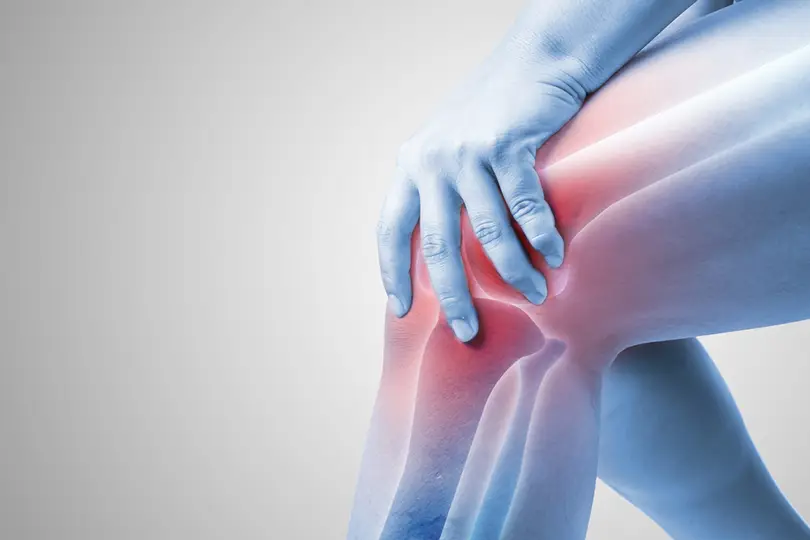Healthy joints are the foundation of our mobility, activity, and quality of life. As long as they work well, we rarely think about the enormous amount of work they do every single day. Joints let us walk, run, climb stairs, lift heavy things, take care of daily tasks, and enjoy sports. But with age, unhealthy lifestyle habits, or excessive strain, joints can start to ache, crack, and limit movement. To prevent that, it’s important to take care of them in advance.

In this article, we’ll look at how joints work, what harms them, and which daily habits can help keep them strong and flexible for years to come.
Why Joints Need Care
A joint is the connection between bones, covered with cartilage and surrounded by a capsule filled with synovial fluid. Cartilage works like a shock absorber, while the fluid nourishes it and reduces friction. When this system breaks down, inflammation, stiffness, and pain can appear.
Joint problems may start for many reasons:
- age-related changes (cartilage wear, lower production of synovial fluid);
- excess weight, which puts additional stress on joints;
- a sedentary lifestyle, which reduces cartilage nutrition;
- injuries or overtraining;
- chronic conditions like arthritis or gout.
The good news is that much depends on us. A healthy lifestyle, smart nutrition, and prevention can help preserve joint health for a long time.
1. Weight Control — Your Joints’ Best Friend
Every extra pound puts enormous pressure on your knees, hips, and spine. For example, when walking, the load on your knees is 3–4 times your body weight. That means if you carry 10 extra kilos, your knees feel it like 30–40 kg!
What to do:
- aim to maintain a healthy weight with balanced eating and regular activity;
- avoid crash diets and yo-yo weight changes, which disrupt metabolism and cartilage health;
- focus on a nutrient-rich diet with enough protein, vitamins, and minerals.
2. Eating Right for Joint Health
Cartilage and bones get their nutrients from blood and synovial fluid. If your diet is poor in vitamins and minerals, your joints wear out faster.
Best foods for your joints:
- Protein — builds cartilage and muscle tissue. Sources: fish, chicken, turkey, legumes, eggs.
- Omega-3 fatty acids — reduce inflammation. Found in fatty fish (salmon, mackerel, herring), flaxseeds, chia seeds, nuts.
- Vitamin D and calcium — strengthen bones. Sources: dairy, broccoli, spinach, nuts, fish, sunlight.
- Vitamin C — essential for collagen production. Sources: citrus fruits, berries, kiwi, peppers.
- Collagen and gelatin — support cartilage. Found in bone broth, aspic, or supplements.
What to limit:
- too much sugar and sweets (trigger inflammation);
- trans fats and fast food;
- excess salt, which causes fluid retention.
3. Movement Is Life for Joints
Muscles and ligaments get stronger only with regular activity. If you sit most of the time, cartilage receives less nutrition, and joints lose elasticity.
Recommended activities:
- swimming and aqua aerobics (minimal joint stress, maximum muscle work);
- Nordic walking;
- yoga and Pilates (stretching, flexibility, core strength);
- cycling or stationary biking;
- light workouts, bodyweight exercises.
Better to avoid:
- jumping, running on hard surfaces, lifting heavy weights without training;
- overtraining — too much stress can damage joints more than no exercise at all.

4. Strength and Flexibility
Strong muscles help unload your joints. For example, thigh muscles reduce knee strain, while back muscles support your spine.
Helpful practices:
- strength exercises (squats without weight, planks, light resistance training);
- stretching after workouts;
- posture correction.
5. Preventing Injuries
Injuries are often the starting point of chronic joint disease. Even small ligament or cartilage tears can lead to arthritis years later.
Prevention tips:
- wear comfortable shoes with good cushioning;
- always warm up before exercise and cool down after;
- use protective gear (knee pads, elbow pads) if needed;
- avoid sudden moves and overload.
6. Water — Fuel for Your Joints
Synovial fluid, the lubricant for joints, is 80% water. Dehydration makes joints less elastic.
Recommendations:
- drink 1.5–2 liters of water daily (depending on weight and activity);
- don’t replace water entirely with tea, coffee, or soda;
- hydrate more during exercise.
7. Quitting Harmful Habits
- Smoking impairs circulation and joint nutrition.
- Alcohol blocks calcium absorption and breaks down collagen.
- Inactivity slows down cartilage metabolism.
8. Regular Checkups
Joint disease often develops silently. Cracking, mild pain, or morning stiffness is already a warning sign.
What’s recommended:
- see an orthopedist or rheumatologist at the first symptoms;
- get X-rays or MRI after injuries or if arthritis is suspected;
- check vitamin D, calcium, and inflammation markers.

9. Natural Remedies and Supplements
Some natural aids can support joint health:
- Herbal teas (nettle, horsetail, turmeric) may reduce inflammation;
- Glucosamine and chondroitin are often recommended for cartilage support;
- Omega-3 supplements if your diet lacks fish.
Important: always consult a doctor before taking supplements.
10. Smart Everyday Habits
Joint health depends not only on diet and exercise but also on how you move daily:
- lift heavy things with a straight back, using your legs;
- choose ergonomic chairs and mattresses that support your spine;
- take breaks and stretch if you sit at a computer for long periods.
Our joints give us freedom, mobility, and independence. Caring for them should start long before pain appears. Weight control, good nutrition, regular exercise, injury prevention, and attention to early signs will help keep your joints healthy for years to come.
📌 Taking care of your joints is an investment in an active, full life without limits.
















